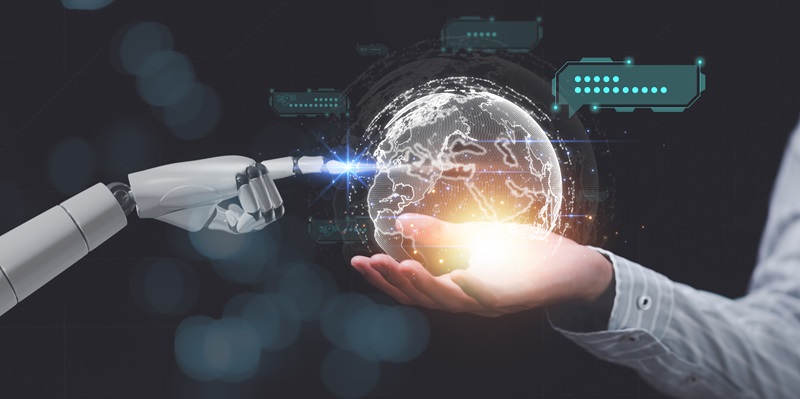The transformative potential of artificial intelligence (AI) is reshaping industries and advancing societal progress. By optimizing business operations and addressing critical social challenges, AI is making a profound impact. This article explores how AI enhances efficiency in the logistics industry and propels corporate social responsibility (CSR) to new heights, highlighting its role in leveling the playing field for businesses and fostering social good.
Revolutionizing Business Efficiency
Enhancing Operational Efficiency in Logistics
AI’s ability to streamline operations is evident in the logistics industry. Traditional logistics companies often face challenges like inventory mismatches and delayed deliveries. Implementing AI and machine learning (ML) systems resolves these issues by providing real-time inventory tracking and optimized delivery routes. This technological advancement reduces operational costs and improves efficiency, allowing smaller logistics firms to compete effectively with larger corporations.
Incorporating AI into logistics operations leads to data-driven decision-making. Companies can predict demand, prevent stock-outs, and manage inventory more efficiently. For instance, AI algorithms analyze historical data to forecast trends and adjust supply chain activities accordingly. This predictive power ensures that logistics firms can meet customer demands promptly and maintain high service standards.
Broader AI Adoption in Businesses
The integration of AI transcends the logistics sector, impacting various industries. Knowledge workers globally are increasingly adopting AI to enhance productivity. AI tools assist in process automation, data integration, and customer engagement, enabling businesses to innovate rapidly. By leveraging AI, even smaller enterprises can compete with industry giants, demonstrating that technology is an equalizer in today’s competitive landscape.
The widespread use of AI also fosters efficiency and agility. Companies can automate repetitive tasks, freeing up human resources to focus on more strategic activities. AI-driven analytics provide insights that drive informed decision-making, leading to improved business outcomes. As AI continues to evolve, its potential to transform business operations and increase competitiveness remains significant.
AI Driving Social Good
Advancements in Healthcare
AI’s applications extend beyond business into the realm of social impact. In healthcare, AI-powered diagnostic tools and telemedicine services are transforming patient care. These technologies are especially beneficial in rural and remote areas where access to healthcare is limited. AI-driven diagnostics enable early disease detection, improving treatment outcomes and saving lives.
Moreover, AI enhances patient monitoring and personalized care. Wearable devices equipped with AI algorithms track vital signs and alert healthcare providers to potential issues in real time. This continuous monitoring ensures timely interventions, reducing the burden on healthcare systems and improving patient quality of life.
Promoting Environmental Sustainability
AI plays a vital role in environmental conservation efforts. Analytics powered by AI track deforestation, monitor wildlife populations, and optimize energy consumption. By analyzing vast amounts of data, AI helps develop environmentally friendly products and practices. Companies can ensure compliance with environmental regulations and maintain transparent, ethical supply chains.
The adoption of AI in environmental initiatives also aids in reducing carbon footprints. AI algorithms optimize energy use by predicting consumption patterns and adjusting usage accordingly. This efficiency leads to significant cost savings and contributes to global sustainability goals. As companies prioritize eco-friendly practices, AI becomes an indispensable tool for achieving these objectives.
Innovative CSR Initiatives
Transforming Corporate Social Responsibility
Post-COVID-19, companies are shifting from traditional philanthropy to innovative CSR strategies driven by AI. This transition allows for the efficient allocation of resources and real-time monitoring of CSR activities. AI ensures that charitable efforts are impactful and aligned with social needs, enhancing transparency and accountability.
By leveraging AI, corporations can address global issues such as climate change and economic inequality. AI-driven platforms analyze data to identify underserved communities and distribute aid more effectively. This targeted approach maximizes the impact of CSR initiatives, demonstrating that technological advancement and social responsibility can go hand in hand.
Enhancing Social Equity Through Education
AI’s potential in advocating social equity is significant, particularly in the education sector. AI-powered educational tools provide personalized learning experiences, adapting to individual student needs. This customization ensures that all students, regardless of their background, have access to quality education.
Educational AI applications also support teachers by identifying learning gaps and suggesting targeted interventions. In regions with limited educational resources, AI makes a substantial difference by bridging access and quality gaps. By democratizing education, AI helps build a knowledgeable and skilled future workforce.
Ethical AI and Responsible Use
Ethical Supply Chain Management
The importance of ethical AI use cannot be overstated. In supply chain management, AI ensures transparency and compliance with ethical standards. By monitoring and managing supply chains, AI helps prevent labor abuses and promotes fair trade practices. This transparency builds consumer trust and enhances brand reputation.
Furthermore, AI-driven platforms enable companies to track the origin of raw materials and ensure adherence to environmental regulations. This level of scrutiny ensures that supply chains are not only efficient but also ethical. As consumers increasingly demand sustainable and responsible products, ethical AI becomes a competitive advantage.
Balancing Innovation and Responsibility
Artificial intelligence (AI) is revolutionizing various sectors and significantly contributing to societal advancements. By fine-tuning business procedures and tackling critical social issues, AI demonstrates a substantial impact on both industry and the broader community. In this discussion, we delve into how AI not only boosts efficiency within the logistics industry but also elevates the practice of corporate social responsibility (CSR) to unprecedented levels. It showcases AI’s capability to level the playing field for businesses of all sizes and enhances their contributions to social well-being.
In the logistics sector, AI optimizes routes, saves fuel, minimizes human errors, and ensures timely deliveries. These improvements lead to cost savings and increased client satisfaction. On the CSR front, AI-driven platforms facilitate ethical sourcing, monitor environmental footprints, and promote transparent corporate governance. By fostering fair competition and providing tools for business improvement, AI supports organizations in achieving their social and environmental goals. In essence, AI is not only transforming business operations but also driving meaningful societal change.

